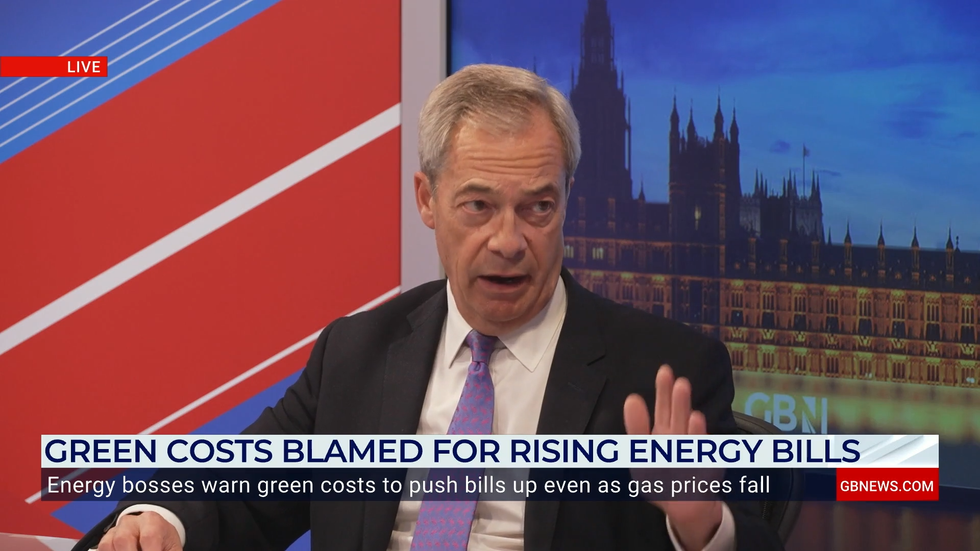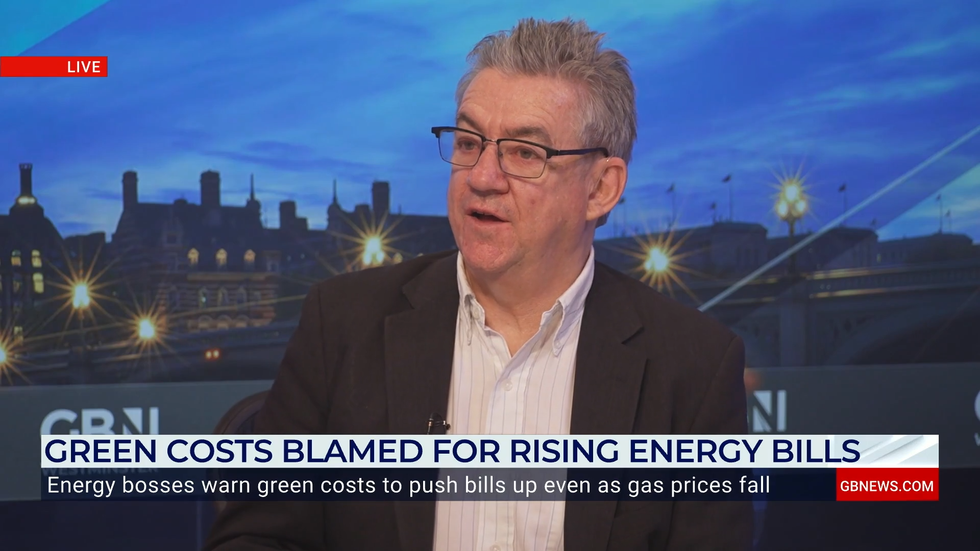Nigel Farage has warned that Britain is “going through rapid deindustrialisation” as he accused Labour of pushing the country towards economic decline.
Speaking on GB News, the host hit out at Rachel Reeves and the Government’s approach to energy and industry.
He said: “We have the highest industrial energy prices in the world. We are going through rapid deindustrialisation as a direct result of it.
“Frankly, if we have four more years of a Labour Government, what’s going to be left of British industry?”

His comments came during a fiery debate with former Tony Blair adviser John McTernan
He said: “Under a Labour Government, there’ll be more highly productive and highly efficient manufacturing.
“That modernisation and decarbonisation are important for the industrial sectors, other economies are decarbonising too. Even the Chinese are building nuclear for the future.”
But Nigel was quick to fire back, warning that the industries of tomorrow would demand even more power.
He said: “The future is going to be AI, cryptocurrencies, digital wallets, data centres, and the amazing thing is, they use more electricity than the old industries of heavy manufacturing ever did.”
Nigel’s warning comes as critics accuse Labour of risking Britain’s industrial base with what he called “a green obsession” that could cost thousands of jobs.
LATEST DEVELOPMENTS:
- ‘This is wrong!’ Keir Starmer blasts decision to ban Israeli fans from Aston Villa match
- Keir Starmer warned of ‘major problem’ as expert predicts political future for PM
- Police BAN Israeli fans from Villa match over safety fears as decision branded a ‘national disgrace’
Household energy bills could soar by hundreds of pounds this decade as green levies spiral out of control, major suppliers have warned.
Senior bosses from Octopus Energy, Centrica, E.On, EDF and Ovo urged the Government to urgently rethink the charges that fund net zero projects, saying they’re fast becoming one of the biggest drivers of rising bills.
Appearing before MPs on Wednesday, Rachel Fletcher, director of regulation at Octopus Energy, said levies, grid expansion and system costs could add around £300 to a typical household electricity bill by 2030.
She warned that even if wholesale prices were slashed in half, bills would still rise by roughly £150 once policy and infrastructure costs were factored in.

The warning is a major blow for Energy Secretary Ed Miliband, who has promised to cut household bills by the same amount by the end of the decade.
Just hours earlier, Mr Miliband blamed high gas prices for Britain’s soaring electricity costs — but industry leaders said net zero funding charges are now outweighing any benefit from cheaper fuel.
Executives cautioned that without urgent reform, British families will be stuck with persistently high energy bills even as global markets stabilise.
They say the growing weight of green levies highlights the widening gap between the Government’s climate ambitions and the reality of keeping power affordable.
Our Standards:
The GB News Editorial Charter







Follow